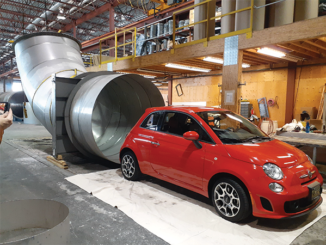(Gen X And Millennials, You’re Up!)
By Mark Breslin, CEO, brezlin.biz

If I objectively analyze the foundation of my construction career, I find that my leadership success can probably be credited to several guys in jeans and dirty boots. It was not a professor, but a contractor-entrepreneur who most encouraged and inspired me by serving as my first mentor and guide. Spare with praise but long on wisdom, he found ways of putting me in the front row for life lessons time after time. Job sites, negotiations, and even a beer at the bar, all became mentor’s tools to connect this young, ambitious, and raw rookie with my potential. Simply put, he saw in me what I could not, and helped me bring it out.
I believe the majority of you readers are like me: you did not get to where you are in this industry without someone like this mentoring you. I think of mentoring as someone taking a personal interest—someone with whom a real connection of trust, communication, and mutual benefit can be made. Mentoring is a very powerful motivational and developmental tool that regularly plays a key role in most of our personal and professional lives. It has also powerfully shaped our industry.
This tradition of mentoring in our industry is a now at risk. I was unaware of the decline until recently, but there is a disconnect between everyone who says it is a great idea and how many leaders are actively engaged. Each year I have the privilege of being retained to speak to tens of thousands of construction leaders. These include CEOs down to project managers, superintendents, and foremen. I ask these leaders the same question: “How many of you received mentoring on your career path?” Ninety-five percent raise their hands. I then ask this follow-up question, and the problem becomes clear: “How many of you are mentoring someone now?” Less than 50 percent respond affirmatively. That response is startling, and it is truly in our interests to find out why it exists.
I have asked those who don’t mentor anyone why, and the aggregated responses follow these themes: “The kids today are not willing to be mentored.”
“It’s not worth the time to invest in them.”
“I don’t have the time to do it.”
On the other hand, when I ask young industry leaders why they think they cannot obtain mentoring, they respond with, “They think mentoring is giving me a hard time instead of showing us how to succeed” or “No one has offered, and I don’t know how to find someone to mentor me.”
These responses speak to both a generational disconnect and a de-valuing of the mentoring time investment. Addressing these obstacles is vital. Beyond the current economic challenges, our industry faces unprecedented demographic succession challenges. The current retirement of the Baby Boomer Generation will profoundly challenge the construction and engineering industries. Gen X and Millennials now must be today’s mentors, despite their relatively young ages. And I predict they will be very good ones. There has never been a time in our industry when mentoring has had more upside. My point is not one presented as a moral imperative or benevolent obligation; it is a bottom-line business and talent strategy upon which this industry may thrive or fail.
I would like to suggest three strategies that all industry leaders should adopt to ensure mentoring does occur:
- All organizations should perform a demographic analysis of their workforce and integrate mentoring into their succession planning.
- Managers, leaders, and supervisors need to be made to understand the operational and economic necessity of mentoring. Perhaps even include incentives, awards, and recognition for top mentors in the organization.
- And finally, all young people need to know how to find a mentor. Both collegiate and apprentice programs need to assist them in developing this skill set. They need to know how to find someone who is willing to invest in them (and how to show appreciation for it being offered).
As was done for me, for over 20 years I have mentored many young people. I meet with or call them monthly. I hear about their lives, work, relationships, dreams, problems, and more. Mostly, I listen. When I do speak, I know it really matters. My payoff is the realization that I have often done the right thing for the right reason for the right person.
Mentoring is the last and final gift a leader gives to his or her employees, organization, and industry. I sincerely hope each of you will take the time to help someone else obtain the rewards and accomplishments that this industry has provided to you. Let us not let our great tradition of mentoring die. ■
Mark Breslin is an author, speaker, CEO and influencer inspiring change for workplace success across all levels of business. Mark has improved leadership, accountability, innovation, and engagement for organizations and individuals. He has spoken to more than 400,000 people and sold hundreds of thousands of copies of his books on leadership and workplace culture. See his work at breslin.biz



